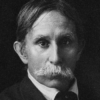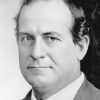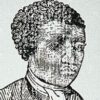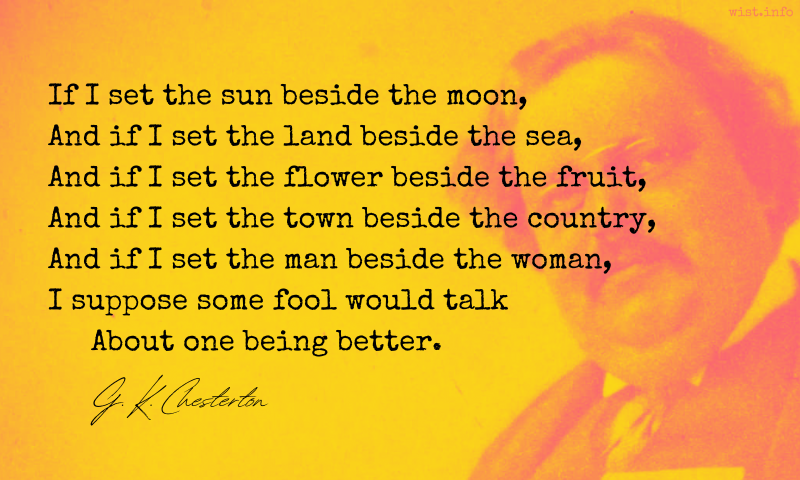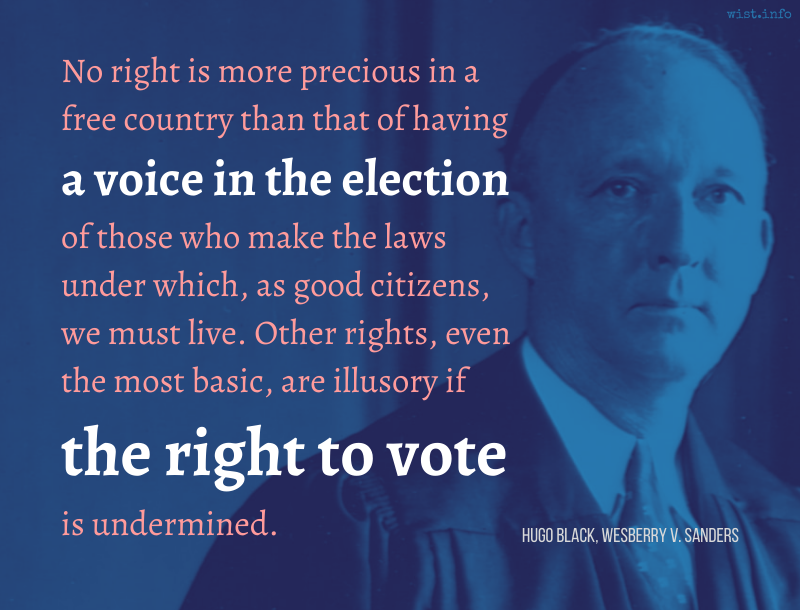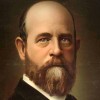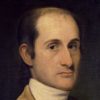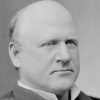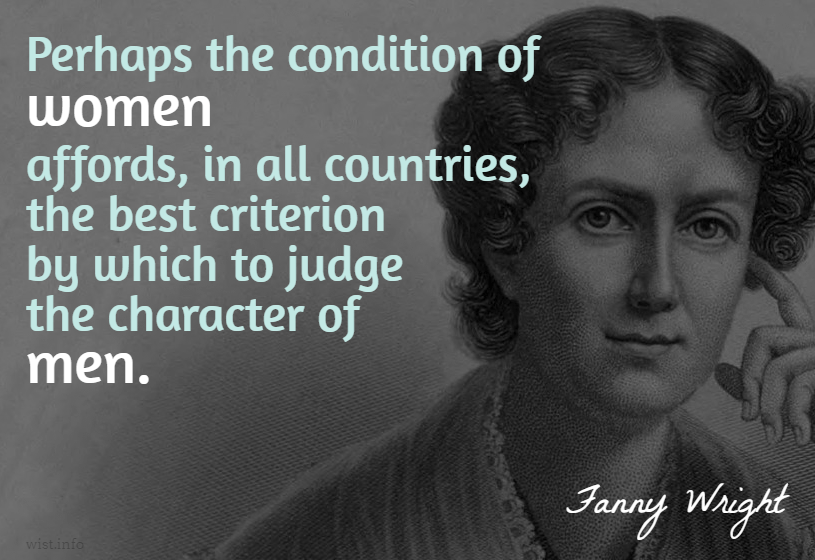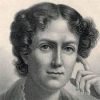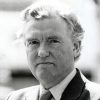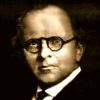A man compensates for the lack of a talent by despising it. He removes the obstacle he finds between himself and merit, and so finds himself on a plane with those whose work he envies.
[Un homme à qui il manque un talent se dédommage en le méprisant: il ôte cet obstacle qu’il rencontroit entre le mérite et lui; et, par là, se trouve au niveau de celui dont il redoute les travaux.]Charles-Lewis de Secondat, Baron de Montesquieu (1689-1755) French political philosopher
Persian Letters [Lettres Persanes], Letter 145, Usbek to *** (1721) [tr. Healy (1964)]
(Source)
(Source (French)). Alternate translations:
A man to whom a talent is wanting, makes himself amends by despising it: he removes that obstacle which was between merit and him, and thereby finds himself on a level with the man whose pen he dreads.
[tr. Ozell (1760 ed.), # 73]
When a man is destitute of any particular talent, he indemnifies himself, by expressing his contempt for it; he removes that obstacle which stood between merit and him, and by that means, raises himself to a level with those whom he before feared as rivals.
[tr. Floyd (1762)]
When a man lacks a particular talent, he indemnifies himself by despising it: he removes the impediment between him and merit; and in that way finds himself on a level with those of whose works he formerly stood in awe.
[tr. Davidson (1891)]
A man who lacks a certain talent compensates himself by despising it: he removes the obstacle placed between him and merit, and thereby finds himself on an equality with the person whose labors he dreads.
[tr. Betts (1897)]
A man who lacks a certain talent will compensate himself by despising it; he eliminates the obstacle which blocks his path to excellence, and, as a consequence, sees himself as the equal of the rival whose work he fears.
[tr. Mauldon (2008), # 156]
Quotations about:
equality
Note not all quotations have been tagged, so Search may find additional quotes on this topic.
With tread imperial, impartial pallid Death
knocks at the doors of cottages and palaces. [Pallida mors æquo pulsat pede pauperum tabernas
Regumque turres.]Horace (65-8 BC) Roman poet and satirist [Quintus Horacius Flaccus]
Odes [Carmina], Book 1, # 4, l. 13ff (1.4.13-14) (23 BC) [tr. Alexander (1999), “To Lucius Sestius”]
(Source)
(Source (Latin)). Alternate translations:
Death knocks as boldly at the Rich mans dore
As at the Cottage of the Poore,
[tr. Fanshaw (1666), "To L. Sextius, a Consular Man"]
With equal foot, Rich friend, impartial Fate
Knocks at the Cottage, and the Palace Gate.
[tr. Creech (1684), "He adviseth his Friend to live merrily"]
Pale Death, impartial, walks his round: he knocks at cottage-gate
And palace-portal.
[tr. Conington (1872)]
Pale death knocks at the cottages of the poor, and the palaces of kings, with an impartial foot.
[tr. Smart/Buckley (1853), "To Sextius"]
Death comes alike to all, — to the monarch's lordly hall,
Or the hovel of the beggar, and his summons none shall stay.
[tr. Martin (1864), "To Sestius"]
But all the while, with equal step, pale Death strides on unpausing,
Knocks at thé lowly shed and regal tower.
[tr. Bulwer-Lytton (1870), "To Lucius Sestius"]
Pale death, with impartial step, knocks at the hut of the poor and the towers of kings.
[E.g. (1893)]
The kingly tower alike
And pauper's hut pale Death will strike.
[tr. Gladstone (1894), "To the Rich Sextius"]
Pale Death with foot impartial knocks at poor men's dwellings.
And tow'rs of monarchs.
[tr. Phelps (1897), "To Sestius"]
Pale death with foot impartial strikes at the huts of paupers and
Kings' towers.
[tr. Garnsey (1907), "To Sestius"]
With equal foot pale Pluto knocks at hovels of the poor,
And at the tyrant's towers
[tr. Marshall (1908), "Spring"]
Pale Death with foot impartial knocks at the poor man’s cottage and at princes’ palaces.
[tr. Bennett (Loeb) (1912), "Spring's Lesson"]
Marching with step impartial, Death's pale Presence raps its call
At doors of rich and poor alike.
[tr. Mills (1924)]
Hold! Pale Death, at the poor man's shack and the pasha's palace kicking
Impartially, announces his arrival.
[tr. Michie (1964)]
Death raps his bony knuckles, bleached,
Indifferent, on any man’s door, a palace or a hut.
[tr. Raffel (1983)]
Revenant white-faced Death is walking not knowing whether
He's going to knock at a rich man's door or a poor man's.
[tr. Ferry (1997)]
Pale death knocks with impartial foot, at the door of the poor man’s cottage,
and at the prince’s gate.
[tr. Kline (2015), "Spring"]
What if thou be saint or sinner,
Crooked gray-beard, straight beginner, —
Empty paunch, or jolly dinner,
When Death thee shall call.
All alike are rich and richer,
King with crown, and cross-legged stitcher,
When the grave hides all.Richard Watson Gilder (1844-1909) American poet and editor
“Drinking Song,” st. 2, Lyrics, and Other Poems (1885)
(Source)
The prince who kept the world in awe,
The judge whose dictate fix’d the law;
The rich, the poor, the great, the small,
Are levell’d; Death confounds ’em all.John Gay (1685-1732) English poet and playwright
Fables, Part 2, Fable 16 “The Ravens, the Sexton, and the Earthworm” (1727)
(Source)
And who can suffer injury by just taxation, impartial laws and the application of the Jeffersonian doctrine of equal rights to all and special privileges to none? Only those whose accumulations are stained with dishonesty and whose immoral methods have given them a distorted view of business, society and government. Accumulating by conscious frauds more money than they can use upon themselves, wisely distribute or safely leave to their children, these denounce as public enemies all who question their methods or throw a light upon their crimes.
William Jennings Bryan (1860–1925) American lawyer, statesman, politician, orator
Speech, Madison Square Garden, New York (1906-08-30)
(Source)
The Lord, the Slave, the Peasant, and the King
Unlike in life, in death the self-same thing.[Mors dominos servis et sceptra ligonibus æquat,
Dissimiles simili conditione trahens.]Walter Colman (1600-1645) English Franciscan friar
“La Danse Machabre or Death’s Duell,” st. 262 (c. 1633)
(Source)
In Hoyt's New Cyclopedia of Practical Quotations (1922), this is translated:
Death levels master and slave, the sceptre and the law,
and makes the unlike like.
If you are required by society to be polite — of course it’s a voluntary system policed only by public opinion — you run into having to have equal respect for people who are not as rich and powerful as you. More than that, because of the concept of noblesse oblige, you are required to treat them even better. So etiquette is the greatest friend of the powerless; without it, might makes right.
Judith Martin (b. 1938) American author, journalist, etiquette expert [a.k.a. Miss Manners]
“Polite Company,” interview by Hara Estroff Marano, Psychology Today (1998-03)
(Source)
The surest safeguard against treason is a polity so just and equitable that no one will wish to betray it. Such an inspiration of men’s affection and men’s confidence is a more dependable guarantee of national security than the most searching catechism or the most diligent secret police. As we depart from this principle we confess our weakness, to our enemies as well as to ourselves. As we are faithful to it we realize our strength and show it to the world.
Whitney Griswold (1906–1963) American historian, educator [Alfred Whitney Griswold]
“Freedom, Security, and the University Tradition,” speech, Columbia University Bicentennial (1954-06-02)
(Source)
Reprinted in Griswold, In the University Tradition (1957).
“Educate women like men,” says Rousseau, “and the more they resemble our sex the less power will they have over us.” This is the very point I aim at. I do not wish them to have power over men; but over themselves.
Mary Wollstonecraft (1759-1797) English social philosopher, feminist, writer
A Vindication of the Rights of Woman, ch. 4 (1792)
(Source)
Usually elided to "I do not wish women to have power over men; but over themselves."
This Sir, was a time in which you clearly saw into the injustice of a State of Slavery, and in which you had just apprehensions of the horrors of its condition, it was now Sir, that your abhorrence thereof was so excited, that you publickly held forth this true and invaluable doctrine, which is worthy to be recorded and remember’d in all Succeeding ages. “We hold these truths to be Self evident, that all men are created equal, and that they are endowed by their creator with certain unalienable rights, that among these are life, liberty, and the pursuit of happyness.”
Here Sir, was a time in which your tender feelings for your selves had engaged you thus to declare, you were then impressed with proper ideas of the great valuation of liberty, and the free possession of those blessings to which you were entitled by nature; but Sir how pitiable is it to reflect, that altho you were so fully convinced of the benevolence of the Father of mankind, and of his equal and impartial distribution of those rights and privileges which he had conferred upon them, that you should at the Same time counteract his mercies, in detaining by fraud and violence so numerous a part of my brethren under groaning captivity and cruel oppression, that you should at the Same time be found guilty of that most criminal act, which you professedly detested in others, with respect to yourselves.
Benjamin Banneker (1731-1806) American naturalist, surveyor, almanac author, mathematician
Letter to Thomas Jefferson (19 Aug 1791)
(Source)
Since law constitutes the bond of civil society, and the authority of the law is equal, how can the society of citizens be maintained when their condition is not equal? If it be not pleasing to place their wealth on equal footing, and if everyone is endowed with unequal abilities, certainly all of those who are citizens of the same republic ought to have equal rights. For, what is the state but the shared rights of its citizens?
[Quare cum lex sit civilis societatis vinculum, ius autem legis aequale, quo iure societas civium teneri potest, cum par non sit condicio civium? Si enim pecunias aequari non placet, si ingenia omnium paria esse non possunt, iura certe paria debent esse eorum inter se, qui sunt cives in eadem re publica. Quid est enim civitas nisi iuris societas?]
Marcus Tullius Cicero (106-43 BC) Roman orator, statesman, philosopher
De Re Publica [On the Republic, On the Commonwealth], Book 1, ch. 32 / sec. 49 (1.49) (54-51 BC) [tr. @sentantiq (2017)]
(Source)
(Source (Latin)). Alternate translations:
Wherefore as the law is the bond of civil society, and equal rights form that of the law, by what power can a community of citizens be maintained, where their condition is not an equal one? If therefore it is not expedient to equalize fortunes; if the powers of mind cannot be equalized in all, certainly then an equality of rights ought to exist, among those who are citizens of the same republic. For what is a state but a community of rights?
[tr. Featherstonhaugh (1829)]
Wherefore, since the law is the bond of civil society, and the justice of the law equal, by what rule can the association of citizens be held together, if the condition of the citizens be not equal? For if the fortunes of men cannot be reduced to this equality—if genius cannot be equally the property of all—rights, at least, should be equal among those who are citizens of the same republic. For what is a republic but an association of rights?
[tr. Barham (1841)]
Wherefore, since the law is the bond of civil society, and the justice of the law equal, by what rule can the association of citizens be held together, if the condition of the citizens be not equal? For if the fortunes of men cannot be reduced to this equality -- if genius cannot be equally the property of all -- rights, at least, should be equal among those who are citizens of the same republic. For what is a republic but an association of rights?
[tr. Yonge (1853)]
Therefore, since law is the bond which unites the civic association, and the justice enforced by law is the same for all, by what justice can an association of citizens be held together when there is no equality among the citizens? For if we cannot agree to equalize men’s wealth, and equality of innate ability is impossible, the legal rights at least of those who are citizens of the same commonwealth ought to be equal. For what is a State except an association or partnership in justice?
[tr. Keyes (1928)]
Since, then, law is the bond that holds political society together, and since equality of rights is a part of law, by what principle of right can an association of citizens be held together, when the status of these citizens is not equal? For, if it is not thought desirable that property should be equally distributed, and if the natural capacities of all men cannot possibly be equal, yet certainly all who are citizens of the same commonwealth ought to enjoy equal rights in their mutual relations. What, indeed, is a state, if it is not an association of citizens united by law?
[tr. Sabine/Smith (1929)]
Since, then, law is the bond which holds together a community of citizens, and the justice embodied in the law is the same for everyone, by what right can a community of citizens be held together when their status is unequal? If the equalization of wealth is rejected, and the equalization of everybody’s abilities is impossible, legal rights at least must be equal among those who live as fellow-citizens in the same state. For what is a state other than an equal partnership in justice?
[tr. Rudd (1998)]
And therefore, since law is the bond of civil society, and rights under law are equal, then by what right can a society of citizens be held together when the status of citizens is not the same? Even if equality of property is not appealing, and if the mental abilities of all cannot be equal, certainly the rights of all who are citizens of the same commonwealth ought to be equal. What is a state if not the association of citizens under the law?
[tr. Zetzel (1999)]
Manners consist in pretending that we think as well of others as of ourselves. Manners are necessary because, as a rule, there is a pretence; when our good opinion of others is genuine, manners look after themselves. Perhaps instead of teaching manners, parents should teach the statistical probability that the person you are speaking to is just as good as you are. It is difficult to believe this; very few of us do, in our instincts, believe it. One’s own ego seems so incomparably more sensitive, more perceptive, wiser and more profound than other people’s. Yet there must be very few of whom this is true, and it is not likely that oneself is one of those few. There is nothing like viewing oneself statistically as a means both to good manners and to good morals.
Bertrand Russell (1872-1970) English mathematician and philosopher
“On Being Insulting,” New York American (1934-12-21)
(Source)
Public calamity is a mighty leveler.
Edmund Burke (1729-1797) Anglo-Irish statesman, orator, philosopher
“On Conciliation With America,” speech, House of Commons (22 Mar 1775)
(Source)
Our legislators are not sufficiently apprised of the rightful limits of their powers: that their true office is to declare and enforce only our natural rights and duties, & to take none of them from us. No man has a natural right to commit aggression on the equal rights of another; and this is all from which the laws ought to restrain him: every man is under the natural duty of contributing to the necessities of the society; and this is all the laws should enforce on him.
Thomas Jefferson (1743-1826) American political philosopher, polymath, statesman, US President (1801-09)
Letter (1816-06-07) to Francis W. Gilmer
(Source)
If I set the sun beside the moon,
And if I set the land beside the sea,
And if I set the flower beside the fruit,
And if I set the town beside the country,
And if I set the man beside the woman,
I suppose some fool would talk
About one being better.Gilbert Keith Chesterton (1874-1936) English journalist and writer
“Comparisons”
(Source)
In "The Notebook" (1894-98). BL MS Add. 73334, fo. 5.
The poem, which has no formal title, has been printed in multiple forms. In many cases, the third line (flower/fruit) is omitted. In some cases "tower" is substituted for "town."
After all, the true civilization is where every man gives to every other, every right that he claims for himself.
Robert Green Ingersoll (1833-1899) American lawyer, agnostic, orator
Interview, Washington Post (14 Nov 1880)
(Source)
Reprinted in The Works of Robert G. Ingersoll, Vol. 8 "Interviews" (1900).
Half humanity was here in this lean dark girl beside him, and that half of humanity had its right to reason, determine and meddle, no less than the male half. After all, they were equally responsible for humankind continuing. There was not an archbishop or an abbot in the world who had not had a flesh and blood mother, and come of a passionate coupling.
Ellis Peters (1913-1995) English writer, translator [pseud. of Edith Mary Pargeter, who also wrote under the names John Redfern, Jolyon Carr, Peter Benedict]
The Holy Thief, ch. 11 (1992)
(Source)
We should take care also that the punishment shall not be out of proportion to the offence, and that some shall not be chastised for the same fault for which others are not even called to account.
[Cavendum est etiam, ne maior poena quam culpa sit, et ne isdem de causis alii plectantur, alii ne appellentur quidem.]
Marcus Tullius Cicero (106-43 BC) Roman orator, statesman, philosopher
De Officiis [On Duties; On Moral Duty; The Offices], Book 1, ch. 25 (1.25) / sec. 89 (44 BC) [tr. Miller (1913)]
(Source)
(Source (Latin)). Alternate translations:
Diligent care should be taken, in the next place, that the penalty be proportioned to the nature of the crime; and that some do not pass without ever being questioned, while others are punished for the same misdemeanours.
[tr. Cockman (1699)]
Great care too must be taken, that the punishment be not greater than the offence; and that some should not be punished for the same offences, for which others are not called to account.
[tr. McCartney (1798)]
We ought, likewise, to take care that the punishment be proportioned to the offence, and that some be not punished for doing things for which others are not so much as called to account.
[tr. Edmonds (1865)]
Care also must be taken lest the punishment be greater than the fault, and lest for the same cause some be made penally responsible, and others not even called to account.
[tr. Peabody (1883)]
Again, we should never impose a penalty disproportioned to the offence or for the same crime punish one and let another go unchallenged.
[tr. Gardiner (1899)]
We must take care that the punishment is not in excess of the crime, and that it is not inflicted on some only while others equally guilty are not even brought to trial.
[ed. Harbottle (1906)]
One should also be careful that the punishment does not surpass the crime and that some people receive beatings while others do not even receive a reprimand.
[tr. Edinger (1974)]
Others again who say that regard should be had for the rights of fellow-citizens, but not of foreigners, would destroy the universal brotherhood of mankind; and, when this is annihilated, kindness, generosity, goodness, and justice must utterly perish; and those who work all this destruction must be considered as wickedly rebelling against the immortal gods. For they uproot the fellowship which the gods have established between human beings.
[Qui autem civium rationem dicunt habendam, externorum negant, ii dirimunt communem humani generis societatem; qua sublata beneficentia, liberalitas, bonitas, iustitia funditus tollitur; quae qui tollunt, etiam adversus deos immortales impii iudicandi sunt. Ab iis enim constitutam inter homines societatem evertunt.]
Marcus Tullius Cicero (106-43 BC) Roman orator, statesman, philosopher
De Officiis [On Duties; On Moral Duty; The Offices], Book 3, ch. 6 (3.6) / sec. 28 (44 BC) [tr. Miller (1913)]
(Source)
(Source (Latin)). Alternate translation:
Others there are, who are ready to confess that they ought to bear such a regard to fellow-citizens, but by no means allow of it in relation to strangers: now these men destroy that universal society of all mankind, which, if once taken away, kindness, liberality, justice, and humanity must utterly perish; which excellent virtues whoever makes void, is chargeable with impiety towards the immortal gods; for he breaks that society which they have established and settled amongst men.
[tr. Cockman (1699)]
They, too, who hold that a regard ought to be paid to our fellow-citizens, but deny it to foreigners, break asunder the common society of mankind, by which beneficence, liberality, goodness, justice, are entirely abolished. They who destroy these virtues, are to be charged with impiety towards the immortal gods. For, by such principles, they subvert established intercourse among men.
[tr. McCartney (1798)]
They, again, who say that a regard ought to be had with fellow citizens, but deny that it ought to foreigners, break up the common society of the human race, which being withdrawn, beneficence, liberality, goodness, justice are utterly abolished. But they who tear up these things should be judged impious, even towards the immortal gods; for they overturn the society established by them among men.
[tr. Edmonds (1865)]
Those, too, who say that account is to be taken of citizens, but not of foreigners, destroy the common sodality of the human race, which abrogated, beneficence, liberality, kindness, justice, are removed from their very foundations. And those who remove them are to be regarded as impious toward the immortal gods; for they overturn the fellowship established among men by the gods.
[tr. Peabody (1883)]
Others again who deny the rights of aliens while respecting those of their countrymen, destroy the universal brotherhood of mankind which involves in its ruin beneficence, liberality, goodness and justice. To destroy these virtues is to sin against the immortal gods. It is to subvert that society which the gods established among men.
[tr. Gardiner (1899)]
In the same way, those who say that one standard should be applied to fellow citizens but another to foreigners, destroy the common society of the human race. When that disappears, good deeds, generosity, kindness, and justice are also removed root and branch. We must draw the conclusion that people who do away with these qualities are disrespectful even against the immortal gods. They destroy the cooperation among men which the gods instituted.
[tr. Edinger (1974)]
For five days last week, the White House and its Capitol Hill allies did urgent battle against what they perceive, or say they perceive, as an attack on the institution of marriage. It’s a strange sort of attack, to be sure: a wonderfully pacific attack, a supportive attack, an attack without the slightest intention or capacity to cause harm, consisting, as it does, of the earnest wish of certain loving couples to join themselves to that very institution and thus to feel themselves, and be accepted as, full members of the American (and human) family.
Hendrik Hertzberg (b. 1943) American journalist, editor, speech writer, political commentator
“Distraction,” The New Yorker (19 Jun 2006)
(Source)
On a push by Republicans for a Constitutional Amendment banning same-sex marriage.
I am an adherent of the ideal of democracy, although I know well the weaknesses of the democratic form of government. Social equality and economic protection of the individual have always seemed to me the important communal aims of the state. Although I am a typical loner in daily life, my consciousness of belonging to the invisible community of those who strive for truth, beauty, and justice keeps me from feeling isolated.
[Ich bekenne mich zum Ideal der Demokratie, trotzdem mir die Nachteile demokratischer Staatsform wohlbekannt sind. Sozialer Ausgleich und wirtschaftlicher Schutz des Individuums erschienen mir stets als wichtige Ziele der staatlichen Gemeinschaft. ch bin zwar im täglichen Leben ein typischer Einspänner, aber das Bewusstsein, der unsichtbaren Gemeinschaft derjenigen anzugehören, die nach Wahrheit, Schönheit und Gerechtigkeit streben, hat das Gefühl der Vereinsamung nicht aufkommen lassen.]
Albert Einstein (1879-1955) German-American physicist
“My Credo Mein Glaubensbekenntnis],” recording for the German League of Human Rights (Autumn 1932)
(Source)
Einstein crafted and recrafted his credo multiple times in this period, and specifics are often muddled by differing translations and by his reuse of certain phrases in later writing.
No right is more precious in a free country than that of having a voice in the election of those who make the laws under which, as good citizens, we must live. Other rights, even the most basic, are illusory if the right to vote is undermined. Our Constitution leaves no room for classification of people in a way that unnecessarily abridges this right.
Hugo Black (1886-1971) American politician and jurist, US Supreme Court Justice (1937-71)
Wesberry v. Sanders, 376 U.S. 1, 17-18 (1964) [majority opinion]
(Source)
The ruling held that congressional districts must have roughly equal populations if possible, such that "one man's vote in a congressional election is to be worth as much as another's."
After the game, the King and the Pawn go into the same box.
(Other Authors and Sources)
Italian proverb
Phrased as such (and noted as an Italian proverb) in H. L. Mencken, A New Dictionary of Quotations (1942). The sentiment can be found in literature back to the 17th Century. See also Omar Khayyám.
More discussion: When the Chess Game Is Over, the King and the Pawn Go Back in the Same Box – Quote Investigator.
There is, in fact, no incompatibility between the principles of feminism and the possibility that men and women are not psychologically identical. To repeat: equality is not the empirical claim that all groups of humans are interchangeable; it is the moral principle that individuals should not be judged or constrained by the average properties of their group. In the case of gender, the barely defeated Equal Rights Amendment put it succinctly: “Equality of Rights under the law shall not be denied or abridged by the United States or any state on account of sex.” If we recognize this principle, no one has to spin myths about the indistinguishability of the sexes to justify equality. Nor should anyone invoke sex differences to justify discriminatory policies or to hector women into doing what they don’t want to do.
Steven Pinker (b. 1954) Canadian-American cognitive psychologist, linguist, author
The Blank Slate, Part 5, ch. 18 (2002)
(Source)
But we are as other men, exactly. Of one blood, one species, one brain, one figure, one fundamental set of collective instincts, one solitary body of information, one everything. Superiority and inferiority are individual, not racial or national.
If all men were rich, all men would be poor.
Mark Twain (1835-1910) American writer [pseud. of Samuel Clemens]
Mark Twain’s Noteook (1935 ed) [ed. Paine]
(Source)
Inferiors revolt in order that they may be equal, and equals that they may be superior.
Aristotle (384-322 BC) Greek philosopher
Politics [Πολιτικά], Book 5, ch. 2 / 1302a.29 [tr. Jowett (1885)]
(Source)
Alternate translations:
- "Now, what they aim at may be either just or unjust; just, when those who are inferior are seditious, that they may be equal; unjust, when those who are equal are so, that they may be superior." [tr. Ellis (1912)]
- "When inferior, people enter on strife in order that they may be equal, and when equal, in order that they may be greater." [tr. Rackham (1932)]
- "The lesser engage in factional conflict in order to be equal; those who are equal, in order to be greater." [tr. Lord (1984)]
In our time, as in times before, creep on the insidious forces that, producing inequality, destroy Liberty. On the horizon the clouds begin to lower. Liberty calls to us again. We must follow her further; we must trust her fully. Either we must wholly accept her or she will not stay. It is not enough that men should vote; it is not enough that they should be theoretically equal before the law. They must have liberty to avail themselves of the opportunities and means of life; they must stand on equal terms with reference to the bounty of nature. Either this, or Liberty withdraws her light! Either this, or darkness comes on, and the very forces that progress has evolved turn to powers that work destruction. This is the universal law. This is the lesson of the centuries. Unless its foundations be laid in justice the social structure cannot stand.
Henry George (1839-1897) American economist
The Law of Human Progress, Book 10, ch. 5 “The Central Truth” (1879)
(Source)
How then do you demand Chastity, while thou dost not yourself observe it? How do you demand that which thou dost not give? How, though you are equally a body, do you legislate unequally? If you enquire into the worse — the Woman sinned, and so did Adam. The serpent deceived them both; and one was not found to be the stronger and the other the weaker. But do you consider the better? Christ saves both by His Passion. Was He made flesh for the Man? So He was also for the woman. Did He die for the Man? The Woman also is saved by His death. He is called of the seed of David; and so perhaps you think the Man is honoured; but He is born of a Virgin, and this is on the Woman’s side. They two, He says, shall be one Flesh; so let the one flesh have equal honour.
Gregory of Nazianzus (329-390) Byzantine prelate, Doctor of the Church, saint, rhetorician [Γρηγόριος ὁ Ναζιανζηνός; Gregory the Theologian]
Oration 37, sec. 7 [tr. Browne & Swallow]
(Source)
I can hardly believe that any person can be found who will not admit that every one of these provisions is just. They are all asserted, in some form or other, in our Declaration or organic law. But the Constitution limits only the action of Congress, and is not a limitation on the States. This amendment supplies that defect, and allows Congress to correct the unjust legislation of the States, so far that the law which operates upon one man shall operate equally upon all. Whatever law punishes a white man for a crime shall punish the black man precisely in the same way and to the same degree. Whatever law protects the white man shall afford equal protection to the black man. Whatever means of redress is afforded to one shall be afforded to all. Whatever law allows the white man to testify in court shall allow the man of color to do the same. These are great advantages over their present codes.
James A. Garfield (1831-1881) US President (1881), lawyer, lay preacher, educator
Speech, House of Representatives (4 Apr 1871)
(Source)
On the proposed 14th Amendment to the US Constitution, which forbade to each state the ability to "deny to any person within its jurisdiction the equal protection of the laws."
Justice is indiscriminately due to all, without regard to numbers, wealth, or rank.
John Jay (1745-1829) American statesman, diplomat, abolitionist, politician, Chief Justice (1789-1795)
Georgia v. Brailsford, 3 US 1 (1794) [unanimous opinion]
(Source)
I do not see in religion the mystery of the incarnation, but the mystery of the social order; religion attaches to heaven an idea of equality that stops the rich from being massacred by the poor.
[Quant à moi, je ne vois pas dans la religion le mystère de l’incarnation, mais le mystère de l’ordre social; elle rattache au ciel une idée d’égalité qui empêche que le riche ne soit massacré par le pauvre.]
Napoleon Bonaparte (1769-1821) French emperor, military leader
Statement (4 Mar 1806)
(Source)
Quoted in Opinions de Napoléon sur divers sujets de politique et d'administration, recueillies par un membre de son conseil d'état (1833).
But in view of the Constitution, in the eye of the law, there is in this country no superior, dominant, ruling class of citizens. There is no caste here. Our Constitution is color-blind, and neither knows nor tolerates classes among citizens. In respect of civil rights, all citizens are equal before the law. The humblest is the peer of the most powerful. The law regards man as man, and takes no account of his surroundings or of his color when his civil rights as guaranteed by the supreme law of the land are involved.
John Marshall Harlan (1833-1911) American lawyer, politician, Supreme Court Justice (1877-1911)
Plessy v. Ferguson 163 U.S. 537, 559 (1896) [dissent]
(Source)
Making money ain’t nothing exciting to me. … You might be able to buy a little better booze than some wino on the corner. But you get sick just like the next cat, and when you die you’re just as graveyard dead as he is.
I am a democrat because I believe in the Fall of Man. I think most people are democrats for the opposite reason. A great deal of democratic enthusiasm descends from the ideas of people like Rousseau, who believed in democracy because they thought mankind so wise and good that everyone deserved a share in government. The danger of defending democracy on those grounds is that they’re not true. And whenever their weakness is exposed, the people who prefer tyranny make capital out of the exposure. I find that they’re not true without looking further than myself. I don’t deserve a share in governing a hen-roost, much less a nation. Nor do most people — all the people who believe advertisements, and think in catchwords and spread rumours. The real reason for democracy is just the reverse. Mankind is so fallen that no man can be trusted with unchecked power over his fellows. Aristotle said that some people were only fit to be slaves. I do not contradict him. But I reject slavery because I see no men fit to be masters.
It is a trite yet urgently true observation that if America is to remain a first-class nation, it cannot have second-class citizens.
Martin Luther King, Jr. (1929-1968) American clergyman, civil rights leader, social activist, preacher
“The Negro and the American Dream,” speech, North Carolina NAACP, Charlotte (1960-09-25)
(Source)
King used this line in several of his speeches at the time.
Perhaps the condition of women affords, in all countries, the best criterion by which to judge the character of men.
Frances "Fanny" Wright (1795-1852) Scottish-American writer, lecturer, social reformer
Views of Society and Manners in America, Letter 23, Mar. 1820 (1821)
(Source)
I decided that perhaps I would like to think of myself as an extremist — in the light of the spirit which made Jesus an extremist for love. If it sounds as though I am comparing myself to the Savior, let me remind you that all who honor themselves with the claim of being “Christians” should compare themselves to Jesus. Thus I consider myself an extremist for that brotherhood of man which Paul so nobly expressed: “There is neither Jew nor Greek, there is neither bond nor free, there is neither male nor female: for ye are all one in Christ Jesus.” Love is the only force on earth that can be dispensed or received in an extreme manner, without any qualifications, without any harm to the giver or to the receiver.
Martin Luther King, Jr. (1929-1968) American clergyman, civil rights leader, social activist, preacher
Playboy interview (Jan 1965)
(Source)
The English, of all ranks and classes, are at bottom, in all their feelings, aristocrats. They have some concept of liberty, & set some value on it, but the very idea of equality is strange & offensive to them. They do not dislike to have many people above them as long as they have some below them.
John Stuart Mill (1806-1873) English philosopher and economist
Letter to Giussepe Mazzini (15 Apr 1858)
(Source)
The urge to distribute wealth equally, and still more the belief that it can be brought about by political action, is the most dangerous of all popular emotions. It is the legitimation of envy, of all the deadly sins the one which a stable society based on consensus should fear the most. The monster state is a source of many evils; but it is, above all, an engine of envy.
Nothing could be more grotesquely unjust than a code of morals, reinforced by laws, which relieves men from responsibility for irregular sexual acts, and for the same acts drives women to abortion, infanticide, prostitution, and self-destruction.
Suzanne La Follette (1893-1983) American journalist, author, feminist
Concerning Women (1926)
(Source)
You cannot bring about prosperity by discouraging thrift.
You cannot help small men by tearing down big men.
You cannot strengthen the weak by weakening the strong.
You cannot lift the wage earner by pulling down the wage payer.
You cannot help the poor man by destroying the rich.
You cannot keep out of trouble by spending more than your income.
You cannot further the brotherhood of man by inciting class hatred.
You cannot establish security on borrowed money.
You cannot build character and courage by taking away men’s initiative and independence.
You cannot help men permanently by doing for them what they could and should do for themselves.William J. H. Boetcker (1873-1962) German-American religious leader, author, public speaker [William John Henry Boetcker]
“The Industrial Decalogue” (1916)
Often referred to as "The Ten Cannots," and also often misattributed to Abraham Lincoln.
But there is one way in this country in which all men are created equal — there is one human institution that makes a pauper the equal of a Rockefeller, the stupid man the equal of an Einstein, and the ignorant man the equal of any college president. That institution, gentlemen, is a court. It can be in the Supreme Court of the United States or the humblest J.P. court in the land, or this honorable court which you serve. Our courts have their faults, as does any human institution, but in this country our courts are the great levelers, and in our courts all men are created equal.
The truest American president we have ever had, the companion of Washington in our love and honor, recognized that the poorest man, however outraged, however ignorant, however despised, however black, was, as a man, his equal. The child of the American people was their most prophetic man, because, whether as small shop-keeper, as flat-boatman, as volunteer captain, as honest lawyer, as defender of the Declaration, as President of the United States, he knew by the profoundest instinct and the widest experience and reflection, that in the most vital faith of this country it is just as honorable for an honest man to curry a horse and black a boot as it is to raise cotton or corn, to sell molasses or cloth, to practice medicine or law, to gamble in stocks or speculate in petroleum. He knew the European doctrine that the king makes the gentleman; but he believed with his whole soul the doctrine, the American doctrine, that worth makes the man.
George William Curtis (1824-1892) American essayist, editor, reformer, orator
“The Good Fight” (1865)
(Source)
Difference must be not merely tolerated, but seen as a fund of necessary polarities between which our creativity can spark like a dialectic. Only then does the necessity for interdependency become unthreatening. Only within that interdependency of different strengths, acknowledged and equal, can the power to seek new ways of being in the world generate, as well as the courage and sustenance to act where there are no charters.
Audre Lorde (1934-1992) American writer, feminist, civil rights activist
“The Master’s Tools Will Never Dismantle the Master’s House” (1979)
(Source)
Equality, rightly understood, as our founding fathers understood it, leads to liberty and to the emancipation of creative differences. Wrongly understood, as it has been so tragically in our time, it leads first to conformity and then to despotism.
That your Sex are Naturally Tyrannical is a Truth so thoroughly established as to admit of no dispute, but such of you as wish to be happy willingly give up the harsh title of Master for the more tender and endearing one of Friend. Why, then, not put it out of the power of the vicious and the Lawless to use us with cruelty and indignity with impunity? Men of Sense in all Ages abhor those customs which treat us only as the vassals of your sex; regard us then as Beings placed by Providence under your protection, and in imitation of the Supreme Being make use of that power only for our happiness.
And by the way, in the the new Code of Laws which I suppose it will be necessary for you to make I desire you would Remember the Ladies, and be more generous and favourable to them than your ancestors. Do not put such unlimited power into the hands of the Husbands. Remember all Men would be tyrants if they could. If particular care and attention is not paid to the Ladies we are determined to foment a Rebellion, and will not hold ourselves bound by any Laws in which we have no voice, or Representation.
We should begin by setting conscience free. When all men of all religions shall enjoy equal liberty, property, and an equal chance for honors and power we may expect that improvements will be made in the human character and the state of society.
This Nation was founded by men of many nations and backgrounds. It was founded on the principle that all men are created equal, and that the rights of every man are diminished when the rights of one man are threatened.
Tonight, we gather to affirm the greatness of our nation — not because of the height of our skyscrapers, or the power of our military, or the size of our economy. Our pride is based on a very simple premise, summed up in a declaration made over two hundred years ago: “We hold these truths to be self-evident, that all men are created equal, that they are endowed by their Creator with certain inalienable rights, that among these are life, liberty and the pursuit of happiness.” That is the true genius of America — a faith in simple dreams, an insistence on small miracles.
Barack Obama (b. 1961) American politician, US President (2009-2017)
Keynote speech, Democratic National Convention (26 Jul 2004)
(Source)
All of us, no matter from what land our parents came, no matter in what way we may severally worship our Creator, must stand shoulder to shoulder in a united America for the elimination of race and religious prejudice. We must stand for a reign of equal justice to both big and small.
Theodore Roosevelt (1858-1919) American politician, statesman, conservationist, writer, US President (1901-1909)
“Americanism,” speech to the Knights of Columbus, New York (1915-10-12)
(Source)
We must recognize the full human equality of all of our people before God, before the law, and in the councils of government. We must do this, not because it is economically advantageous, although it is; not because the laws of God command it, although they do; not because people in other lands wish it so. We must do it for the single and fundamental reason that it is the right thing to do.
Robert Francis Kennedy (1925-1968) American politician
“Day of Affirmation,” address, University of Capetown, South Africa (6 Jun 1966)
(Source)
Nearly eighty years ago we began by declaring that all men are created equal; but now from that beginning we have run down to the other declaration, that for some men to enslave others is a “sacred right of self-government.” These principles cannot stand together. They are as opposite as God and Mammon; and whoever holds to the one must despise the other.



